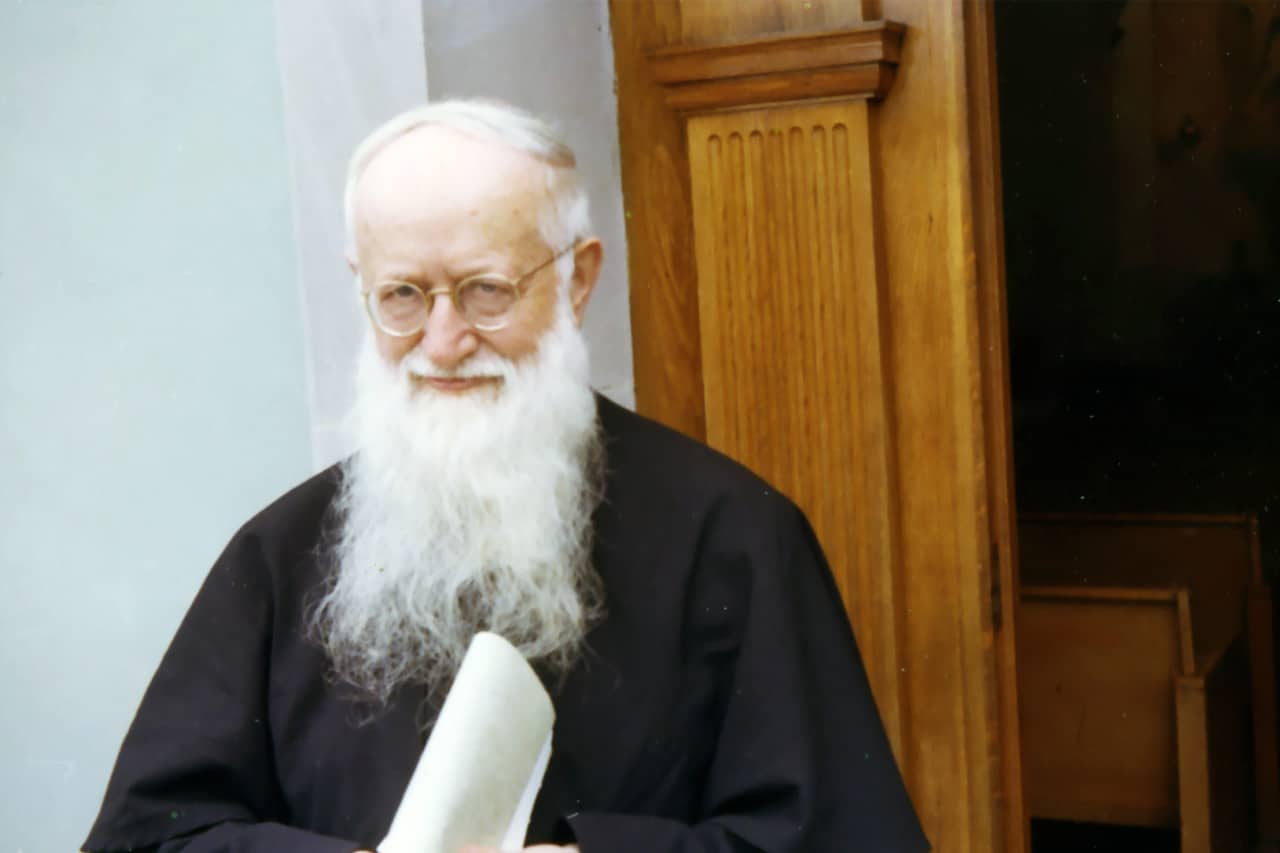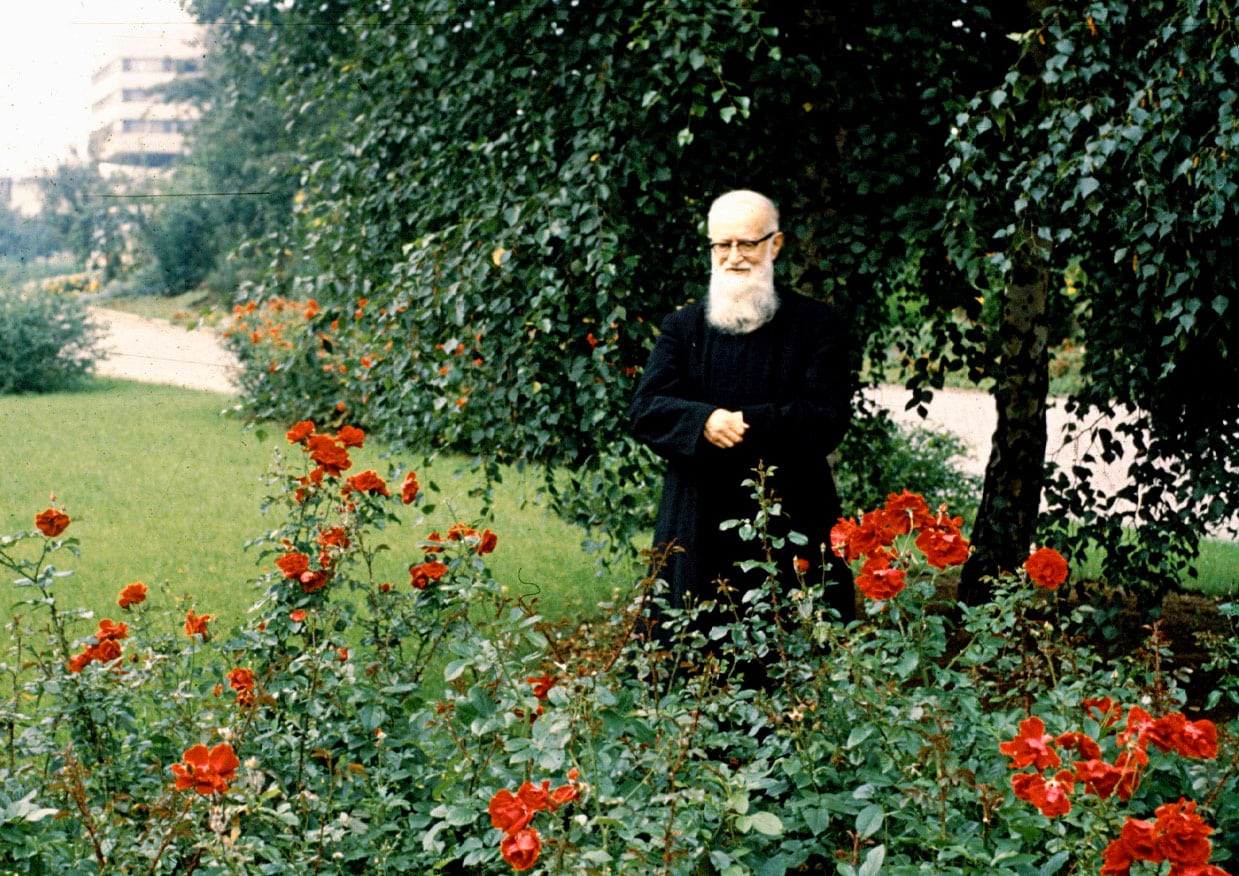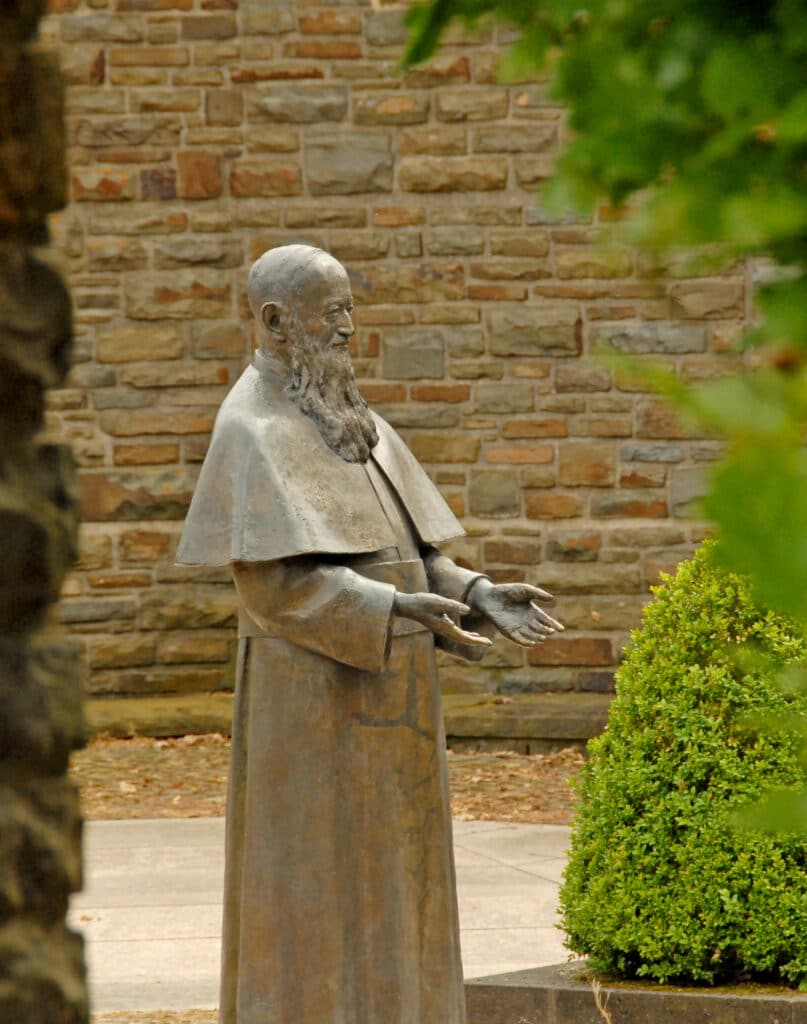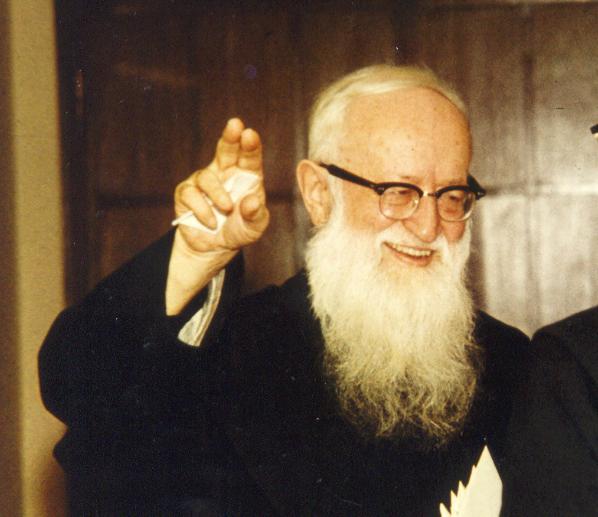Father Joseph Kentenich
His life – a life in covenant: towards the sky and at the same time with both feet on the ground, as a companion to many people
Father Joseph Kentenich
Setting the course for the future
What does Father Kentenich have to say to us today, more than 50 years after his death? The question is obvious because so much has changed in these decades. “The cards of world society, all the cards, are being reshuffled … In a sense, the card game is being reinvented” (M. Hochschild).

It is fascinating to delve into the life and teachings of Schoenstatt’s founder, Father Kentenich. The challenges and misunderstandings he faced from his contemporaries, including church authorities, were mainly due to his forward-looking approach. He was not content with the status quo but sought to answer developments and questions that most people were unaware of.

In a study during his exile, he wrote that Schoenstatt – and thus he in particular as a founder – ‘was far ahead of the times and the conception of the times. More than backward, it is oriented forwards on the newest shore of time’ (Study, 1961). This forward-looking perspective is a source of inspiration for us all.
Biography of Father Joseph Kentenich
A life of adventures and challenges in the service of God and people.

Interpreting and shaping the times as Christians
There is a profound lesson to be learned from Father Kentenich, one that holds particular relevance for us as Christians in these times of rapid change. We bear a significant responsibility to interpret the events of our time in the light of God and actively contribute to shaping them.
When the National Socialists rose to power in Germany, Father Kentenich urged, 'We must also show by deed that we are intervening in the wheels of the new age ... There must be a strong spiritual confrontation.'
This call to action is as relevant today as it was then. As Christians, we must not 'lag' behind current events and not 'only speak out when it is too late, and the world already has a new face.'
Shaping the times begins in our hearts
One example of many: In April 1961, the Israeli war crimes trial against the former SS head Eichmann, responsible for the execution of millions of Jews in the concentration camps, shocked the world. He shows no remorse. Father Kentenich picks up on this, saying, “It is not enough to say that Eichmann shows that man can become a beast. We should also ask ourselves: “Is there also an Eichmann in us? We need to learn more about these things: God wants to say something to me personally through everything in world history” (May 29, 1961). For our founder, social change always begins in one’s own heart. “You see, that is why we must always observe all world events, including politics, from this point of view: What is the good Lord saying to me through this? If not even the smallest hair falls from my head without it being registered in God’s plan (cf. Mt 10.30), then it is certain that he will not allow such tremendous events without having a purpose for me.” (1.5.1961)
The word with which he characterizes himself shows how we, too, can assume our Christian responsibility for shaping the future of the world today:
"Whoever wants to depict me figuratively must do it this way: with the ear to the heart of God and the hand on the pulse of the times."
14. 3. 1955

"We were not people who constantly sat behind walls. No, like perhaps few others, we have always oriented ourselves to the contrasts in today's world ... We should be happy to live in a time like this, in which everything is spiritually mixed up. We must have the courage to examine what God wants to tell us through all these currents ... We do not intend to solve all the questions now, nor will we be able to. There will always be questions that stand before us like riddles. For now, it is important that we do not crawl into a mouse hole but that we are happy to participate in the confusion that the present time offers us. The good Lord speaks, and how he speaks! We have only forgotten how to understand his language to some extent and how to interpret it correctly."
J. Kentenich 27.12.1967
